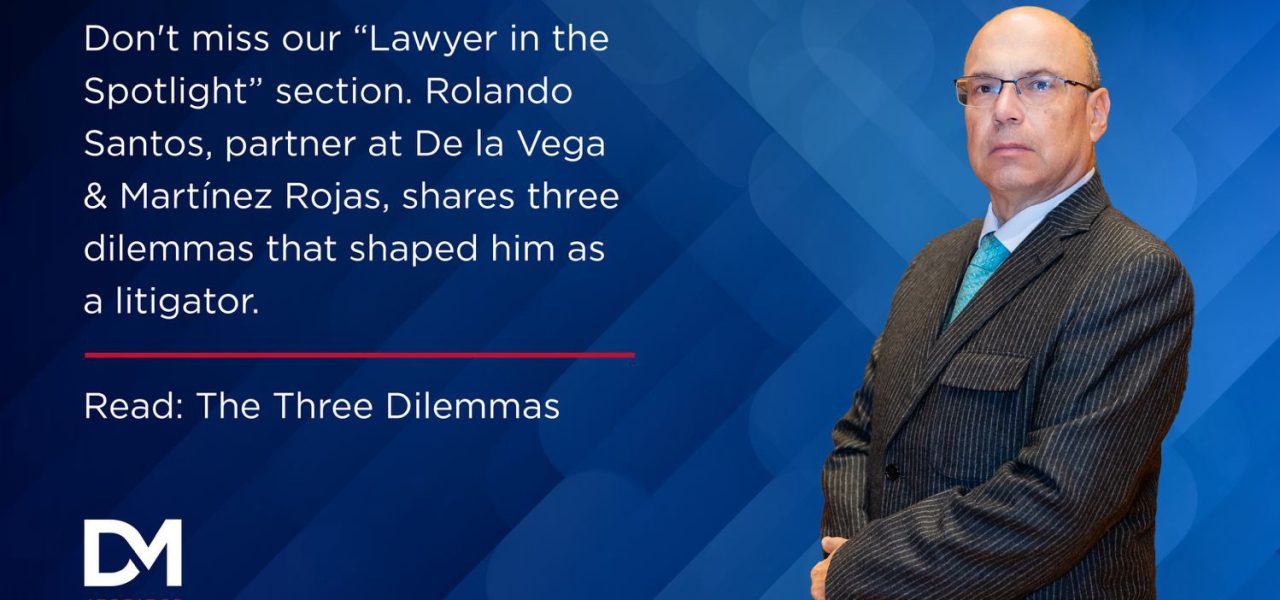The passage of time
First dilemma:
I remember many years ago, when I started working as a legal intern at an employers’ union, the only thing I knew about labor law was the location of the Conciliation and Arbitration Boards, since they were very close to the law school where I studied. That was all I knew, as I had never worked in this area. During my first week, I was scheduled to accompany a more experienced lawyer to a hearing to learn the ropes. I arrived at the office very early, wearing a suit and tie… and he never showed up! Another lawyer told me, “We’re swamped. Go to the hearing, present the power of attorney, and respond to the lawsuit.”
“Respond to what?” I asked.
“Read the lawsuit and respond. Use logic, apply what you’ve studied—we went to the same school,” he said. “You’re a thinking being. You’ll manage.”
So off I went, arriving at the Local Board on Dr. Lavista street, praying to every saint I knew that I’d run into someone who could help. I didn’t.
I managed to skim through the lawsuit and review over 50 supporting documents. It was a case involving lack of registration with the social security system, among other claims. I had no clue beyond what I had studied. Clearly, the opposing attorney saw how green I was and didn’t even greet me. He confirmed the claims; I responded as best I could. Everything was in dispute, and unfortunately for me, the lawsuit was packed with facts and demands. I did what I thought was right, presented the evidence, and at the end of the hearing, the other lawyer said something that gave me great comfort:
“I thought you’d speak nonsense, poorly worded and written—but you said what was necessary and submitted the correct documents. You clearly rely on logic. That will help you a lot in your career, young man.”
That moment has defined my over four-decade-long legal career: using logic as the cornerstone of litigation. If you don’t know what to do—use logic. Sadly, many lawyers and judges today have forgotten this classic Aristotelian logic and its application to law. It’s a clear and sensible approach to solving legal problems. It doesn’t guarantee you’ll win, but it gives you a strong chance to persuade the judge.
Second dilemma:
Once I was more settled into my role as an intern, I noticed that some respected lawyers would submit extremely brief responses—just one or two pages—simply affirming or denying the claims, often with minimal explanation. Almost all of them, though, included a job reinstatement offer in about 90% of cases. Others would respond with lengthy narratives, like high school essays spanning over 10 pages.
Which approach was better?
Interestingly, two of my more experienced colleagues had opposite styles—one used the short format, the other the long. Both were highly respected. I tried both approaches and eventually realized that either could work, as long as you had the evidence to back it up—and, more importantly, felt comfortable and confident in your strategy. Over time, I developed a hybrid model that’s served me well, but always asking: “How will I prove what I’m saying?”
Third dilemma:
I also observed that some lawyers never cited legal precedents or case law in their briefs, while others filled more than half of theirs with them. I once reviewed an initial lawsuit that included over 30 pages of jurisprudence. I thought, “All that’s missing are recipes, the TV guide, and a list of top restaurants.”
So what’s best?
Personally, I’ve always aimed to cite only the essential case law—just what’s strictly necessary to support my statements and claims. I even highlight the relevant part of the excerpt. While it’s the judge’s job to know the law, a little nudge can help—but without overdoing it.
Once, a seasoned judge at the Local Board of Mexico City showed me five pages of closing arguments from a lawyer and said: “Do you really think I’m going to read this? Just give me the essentials—why should I rule for or against—in one page.” Lesson learned.
Without a doubt, experience is a key factor that comes with time. It shapes you through both good and bad moments. If you learn from them, they turn you into a coherent, consistent, empathetic, and capable lawyer.
To the new generations: there will be joyful and difficult times, but always strive to give your best to achieve the best outcomes. I always remember something a great civil procedure professor once told us:
“A trial lawyer can do anything.”
All you have to do is find the right path, and that path is built on knowledge, personal growth, learning from others, hard work, and professional development. These all lead to experience—some gain it early, others later, and unfortunately, some never do.



